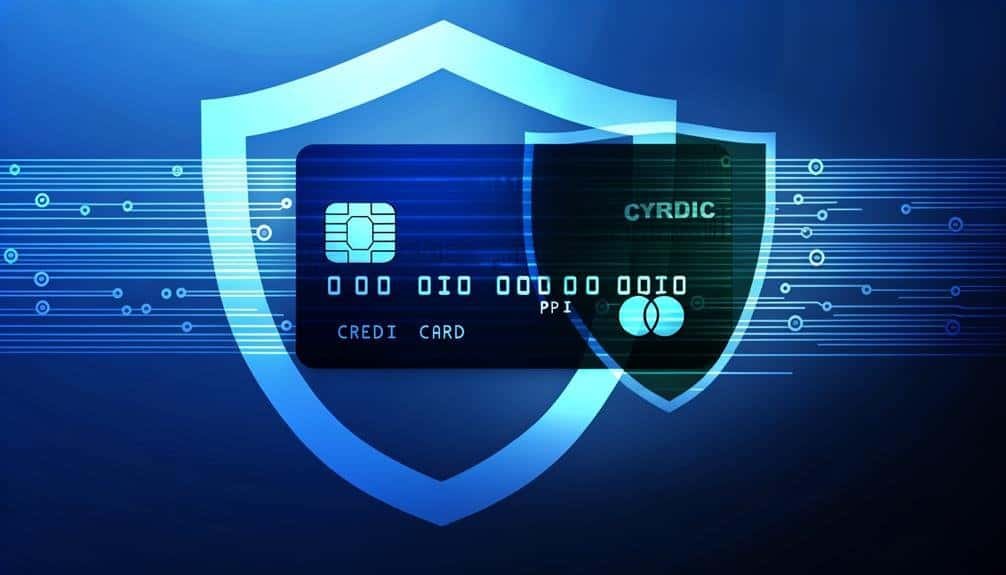What Is PCI Compliance Fee?
Have you ever wondered what exactly is a PCI compliance fee and why it matters? Well, you're not alone.
In today's digital age, where security breaches seem to be a regular occurrence, businesses are under increasing pressure to protect sensitive customer data. That's where PCI compliance comes into play.
But what exactly does it entail and who is responsible for paying the fee? In this discussion, we will explore the ins and outs of PCI compliance, its importance, and the consequences of non-compliance.
So, fasten your seatbelt and get ready to unravel the mysteries of the PCI compliance fee.
Key Takeaways
- The PCI compliance fee covers the cost of meeting the Payment Card Industry Data Security Standard (PCI DSS).
- PCI compliance is crucial for businesses processing credit card payments as it reduces the risk of data breaches and cyberattacks.
- The responsibility for paying the PCI compliance fee typically falls on the merchant or business accepting credit card payments.
- Non-compliance with PCI DSS can result in penalties, including fines and suspension of payment processing ability.
What Is PCI Compliance Fee?
If you're a business owner that processes credit card payments, you may have encountered the term 'PCI Compliance Fee.' This fee is charged by payment processors to cover the cost of PCI compliance, which stands for Payment Card Industry Data Security Standard.
PCI compliance requirements are a set of security standards that businesses must meet to ensure the protection of cardholder data. These requirements include maintaining a secure network, implementing strong access controls, regularly monitoring and testing systems, and maintaining an information security policy.
The cost of PCI compliance can vary depending on the size and complexity of your business, as well as the level of compliance required. It's important to understand and budget for this fee to ensure that your business remains compliant with industry standards and protects your customers' sensitive information.
Importance of PCI Compliance
PCI compliance is crucial for businesses that process credit card payments to ensure the security of cardholder data. Implementing PCI compliance measures is essential in today's digital landscape, where data breaches and cyberattacks are constantly on the rise. By adhering to the Payment Card Industry Data Security Standard (PCI DSS), businesses can significantly reduce the risk of data breaches, protect sensitive customer information, and maintain the trust of their customers. The importance of data security cannot be overstated, as the consequences of a data breach can be severe, including financial loss, reputational damage, and legal liabilities. By achieving and maintaining PCI compliance, businesses can enjoy several benefits, such as increased customer confidence, improved brand reputation, and enhanced protection against cyber threats.
| Benefits of PCI Compliance |
|---|
| Increased customer confidence |
| Improved brand reputation |
| Enhanced protection against cyber threats |
| Reduced risk of data breaches |
| Compliance with industry regulations |
Implementing PCI compliance measures is not only a regulatory requirement but also a way to safeguard sensitive cardholder data and protect your business from potential financial and reputational damage. By prioritizing data security and adhering to the PCI DSS, businesses can demonstrate their commitment to protecting customer information and enjoy the many benefits that PCI compliance brings.
Who Is Responsible for Paying PCI Compliance Fee?
After understanding the importance of PCI compliance for businesses, it's essential to determine who bears the responsibility of paying the PCI compliance fee.
The responsibility for paying the PCI compliance fee falls on the merchant or business that accepts credit card payments. This fee is typically paid to the Payment Card Industry Security Standards Council (PCI SSC) or a Qualified Security Assessor (QSA) who helps ensure that the business is compliant with PCI standards.
It's important to note that the PCI compliance fee breakdown may vary depending on several factors, such as the size and volume of transactions processed by the business. Additionally, some payment processors or financial institutions may pass on the cost of the PCI compliance fee to the merchant.
It's recommended that businesses consult with their payment processor or financial institution to understand the specific breakdown of the PCI compliance fee.
Consequences of Non-Compliance With PCI DSS
Failure to comply with PCI DSS can result in significant consequences for businesses. Non-compliance may lead to penalties, which can be quite severe. The penalties for non-compliance vary depending on the severity of the violation and the number of times the violation has occurred.
These penalties can range from fines to suspension of the ability to process credit card payments. In addition to financial penalties, non-compliance can also have a detrimental impact on customer trust.
If customers discover that a business isn't PCI compliant, they may lose confidence in the security of their payment card information and choose to take their business elsewhere. Therefore, it's crucial for businesses to prioritize PCI compliance to avoid these potential consequences and maintain customer trust.
Tips for Managing PCI Compliance Fee
To effectively manage the PCI compliance fee, businesses should implement efficient strategies and prioritize cost-effective solutions. Reducing costs is a top priority for managing this fee.
One best practice is to conduct a thorough assessment of your organization's payment processing system to identify any vulnerabilities or areas of improvement. By addressing these issues promptly, you can prevent potential security breaches and reduce the risk of non-compliance penalties.
Another effective way to manage the fee is to streamline your payment processes and consolidate your payment channels. This can help eliminate unnecessary fees and simplify your compliance efforts.
Additionally, staying up to date with the latest PCI DSS requirements and implementing strong data security measures can help reduce the likelihood of non-compliance fees.
Conclusion
In the complex world of payment card processing, the PCI compliance fee serves as a symbolic reminder of the importance of safeguarding sensitive customer data. This fee, borne by businesses, ensures adherence to stringent security standards set by the Payment Card Industry Data Security Standard.
Non-compliance can lead to severe consequences, including financial penalties and reputational damage. By managing the PCI compliance fee effectively, businesses can't only protect themselves but also inspire trust and confidence in their customers.







